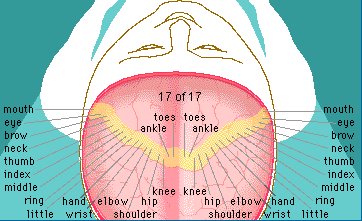A new study by scientists in the US has found a molecule in the brain of mice that when suppressed appears to make them forget the fear associated with a traumatic shock. It is hoped one day that this could lead to a drug to "cure" Post Traumatic Stress Disorder (PTSD).The study is published in the advanced online edition of the journal Nature Neuroscience and is the work of researchers from MIT's Picower Institute for Learning and Memory, based in Cambridge, Massachusetts.Led by Li-Huei Tsai, Picower Professor of Neuroscience at MIT, the scientists showed that inhibiting an enzyme called Cdk5 (a protein kinase) in the hippocampus, the centre in the brain that stores emotional memories, helps to extinguish fear learned in a particular context. But when Cdk5 activity is increased, the fear persists.PTSD results from an extreme stress reaction to an event that is perceived as highly threatening, where symptoms don't lessen with time, but remain for months and years afterwards, sometimes even getting worse. It is thought to arise from the brain's inability to extinguish the fear triggered by memories of the event. Symptoms of PTSD include flashbacks, overwhelming feelings of anger, anxiety and sometimes depression can follow too.Current psychological treatments for PTSD rely on learning to extinguish the fear triggered by memories of the trauma. This can be supported by drugs like antidepressants to help ease some of the symptoms, but there is currently no drug that addresses the underlying chemical processes directly, and they aren't well understood anyway, said the researchers. But, they said some research suggests that the mechanism that encodes memories of the trauma may also, in part, control their extinction.Tsai and colleagues already knew that Cdk5, when paired with another protein, p35, helps new neurons to grow and travel to their correct positions when the brain is developing. The aim of the current work with Cdk5 was to look into how the enzyme affected the formation and extinction of fear-related memories.They conducted an experiment where genetically engineered mice were given mild foot shocks in a certain environment. Then they put the mice in the same environment without giving them foot shocks and found that the mice with increased levels of Cdk5 continued to "freeze" with fear. But the mice in which the Cdk5 was inhibited were able to learn that they no longer needed to fear that environment any more. They were able to "let go" of the memory of the foot shock.Tsai said that:"Remarkably, inhibiting Cdk5 facilitated extinction of learned fear in mice. This data points to a promising therapeutic avenue to treat emotional disorders and raises hope for patients suffering from post-traumatic stress disorder or phobia."Explaining their findings, Tsai suggested that it could be because when Cdk5 is active, it prevents another key kinase from helping the extinction to take place.According to the National Center for PTSD in the US, 1 person out of every 12 experiences PTSD at some point in his or her life; this equates to over 5 million Americans living with PTSD at any one time. And a study by the US Army in 2004 showed that 1 in 8 soldiers returning from duty in Iraq had symptoms of PTSD. "A hippocampal Cdk5 pathway regulates extinction of contextual fear."Farahnaz Sananbenesi, Andre Fischer, Xinyu Wang, Christina Schrick, Rachael Neve, Jelena Radulovic and Li-Huei Tsai.Nature Neuroscience Published online: 15 July 2007doi:10.1038/nn1943Click here for Abstract.Click here for National Center for PTSD (US).Written by: Catharine PaddockWriter: Medical News Today Copyright: Medical News Today Not to be reproduced without permission of Medical News Today
http://www.medicalnewstoday.com/articles/76943.php
Monday, August 27, 2007
Subscribe to:
Post Comments (Atom)

http://www.windyweb.com/stop.htm














No comments:
Post a Comment